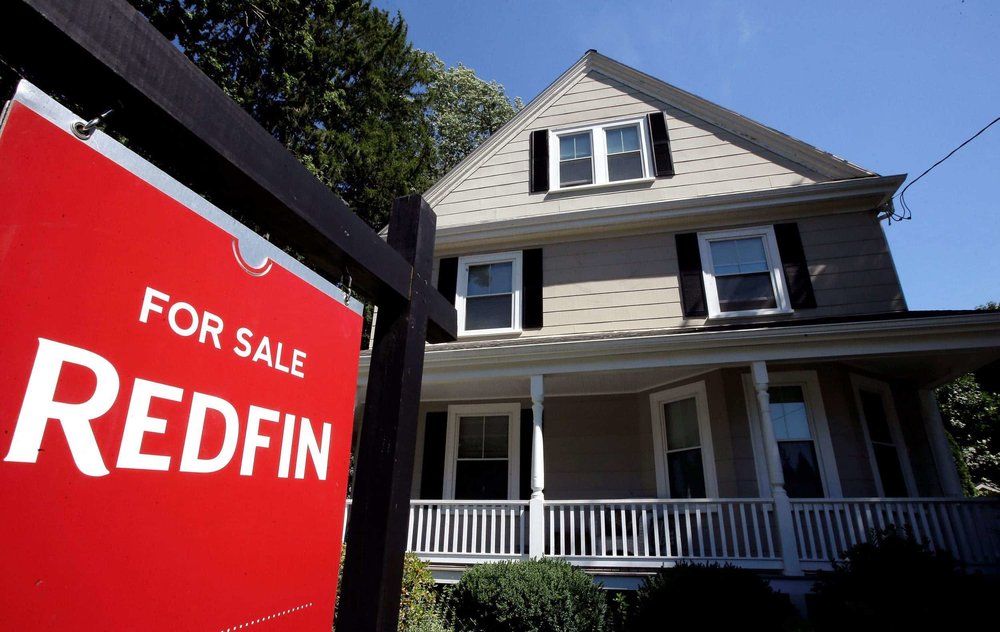
U.S. Mortgage Rates Continue to Decline For Four Weeks in a Row

According to the experts, the mortgage rates in the country continues to decline this Summer Season. while this may be a bad news for the investors, the latest trend is appealing for the home buyers.
The Falling Trajectory
According to Freddie Mac‘s latest data, the average 30-year fixed-rate plummeted by 0.5 points at 4.51%. The said new mortgage rates fell by 0.2% compared to 4.53% a week ago. According to the financial experts, the 30-year fixed rate continues to decline for four weeks in a row.
However, it still remains in the same narrow band compared to 3.86% percent in the year 2017. They also expect the fixed rate to stabilize for the entire Summer season. Meanwhile, the average percentage for the 15-year fixed-rate also plummeted down to 3.98 compared to 4.01% a week ago, and around 3.16% in the year 2017.

According to the experts, the average points pertain to the fees paid to a lending institution equal to 1% of the loaned amount.
The average 5-year adjustable rate also fell by 0.3 points at 3.82% compared to 3.87% a week ago, and 3.17% a year ago. According to Zillow’s senior economist Aaron Terrazas, the mortgage rates continue to fall in the late-summer doldrums.
While the fixed-rates’ overall performance is still stable for the past week, it remains exactly where they stood a month prior. Terrazas also adds this phenomenon is quite expected, considering the financial markets are also silent in the second half of August. Aside from that, there weren’t any major economic news that could influence or change the current trajectory.
The Restricted Market
While the new home sales data typically doesn’t influence the market, Terrazas reveals it can also trigger the investors and buyers’ fear and uncertainty in a slow housing market. Like what happened earlier last week, the sales declined by 0.7% compared to July’s statistics, making it the longest slump in the mortgage industry since 2013.
According to Freddie Mac’s chief economist Sam Khater, this shows that the restriction on availing an affordable mortgage or property have cooled the housing market, especially for those living in expensive coastal markets. Moreover, the public is now wiser in picking affordable property. They choose to delay their goal of purchasing a mortgage if it means having an affordable option.

Khater adds that most metro areas nowadays are in desperate need to find existing or new affordable mortgage inventory to break free from this slump
Meanwhile, the Federal Reserve expressed their concerns about the current performance of the housing market this week. After the recent meeting they conducted from July 31-Aug 1, the central bank noted that the high mortgages rates, delays in getting approval for building constructions, scarcity of land, labor shortages, and the recently imposed tariff have all contributed to the worsening of the housing sector.
Reversing the Trend
Despite the recent low performance of mortgage rates, the Arcus Lending CEO Shashank Shekhar reveals the market already anticipates the said move. So it’s unlikely to affect or influence the current home loan rates they have.
According to the recent survey conducted on experts by Bankrate.com, they found nearly 2/3 of the mortgage experts claim the mortgage rate will remain stable for next week, with Shekhar leading the said claims. Shekhar adds that despite the weekly fluctuations, the mortgage rate will eventually stabilize and end in the same rate last mid-April.
Shekhar adds that despite the sudden hike in early 2018, the market is now in its fourth month of stabilizing the mortgage rates. He also suspects that President Trump’s potential problems and clash with Cohen and Manafort can become a catalyst to park money in safe investments like bonds, which in turn, can lower the mortgage rates further. The Mortgage Bankers Association also sees an increase in both purchase and refinance applications since last week.
The refinance index increased up to 6% compared to the week prior, while the purchase index increased up to 3%. If the problems of low inventory and affordability will be addressed sooner, the MBA economist Joel Kan says more people would avail in mortgages.
More in Pocket Change
-
`
Santo Spirits: Sammy Hagar and Guy Fieri’s Joint Venture
In the world of business partnerships, some combinations might seem unconventional at first glance. But when you delve deeper into the...
November 16, 2023 -
`
Everything You Need to Know About Mortgage Rate Lock
You have probably embarked on the exciting yet nerve-wracking voyage of purchasing a home. Amidst the sea of paperwork, open houses,...
November 9, 2023 -
`
7 Effective Ways to Make Your Business More Sustainable
In an age of rising environmental consciousness, making your business more sustainable isn’t just a trend; it’s a necessity. Sustainable practices...
November 3, 2023 -
`
Housing Market Going Up? Then Why Not Rent?
“Buy a house! It is the best investment!” How many times have you heard that? Probably enough to make a drinking...
October 29, 2023 -
`
Surprising! Celebs Who You Didn’t Know Had a Master’s Degree
When it comes to celebrities, we often associate them with glitz, glamour, and blockbuster movies. But did you know that some...
October 17, 2023 -
`
Navigating the Housing Maze: The 7% Mortgage Rate Quandary
If there is one thing that this year has thrown our way (apart from those fascinating tech gadgets we did not know...
October 12, 2023 -
`
Where to Buy a House in the U.S With a $100K Salary
Got a cool $100,000 annual paycheck in your pocket? Cheers to that accomplishment! With such a financial cushion, dreams of homeownership...
October 6, 2023 -
`
The “Grave” Housing Crisis Forcing U.S. Homeowners to Sell Their Houses
Every culture has its dreams and aspirations. For those living in the United States, it has traditionally been an idyllic house, spacious and...
October 1, 2023 -
`
Why Private Equity is Betting Big on Hollywood
Hollywood has long been a glamorous yet unpredictable industry. But what is new in Tinseltown? Private equity investments. Yes, that is right!...
September 19, 2023















You must be logged in to post a comment Login